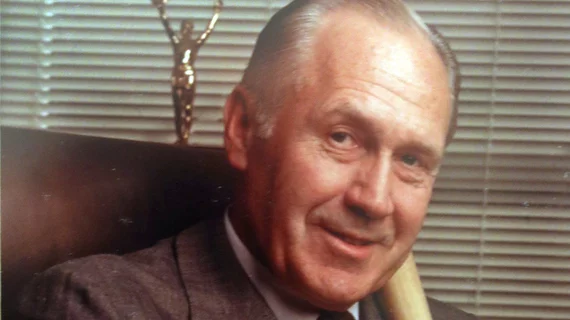Bobby Brown, Texas cardiologist and World Series-winning third basemen for the New York Yankees, dies at 96
Bobby Brown, MD, a veteran cardiologist who also won four World Series titles as a third basemen for the New York Yankees, died March 25 due to natural causes. He was 96 years old.
Brown played for the Yankees for eight seasons. He may have played more professional baseball, but he missed significant time in 1953 and 1954 due to serving in the U.S. Army during the Korean War.
After retiring from baseball in 1954, Brown went on to spend 30 years working as a cardiologist in Fort Worth, Texas. He was also the president of Major League Baseball’s American League from 1984 to 1994. According to a thorough review of his life by the Dallas Morning News, he gained a reputation for his warmth and impeccable ability to tell a great story.
After news of Brown’s passing began to spread, many colleagues from the healthcare and athletic worlds spent much of the day paying respect to his memory.
“Dr. Bobby Brown led an extraordinary life, which included great accomplishments on the baseball field and as a leader and executive in our game," Major League Baseball Commissioner Rob Manfred said in a statement. “He was a quiet star in each of the four World Series in which he played, a popular Yankee teammate, and a close friend of Yogi Berra and Joe DiMaggio. As president of the American League for a decade, Dr. Brown was an outstanding ambassador for the national pastime and a trusted advisor to five commissioners.”
“Few people who have worn the pinstripes have lived such an accomplished, fulfilled, and wide-ranging life as Dr. Brown, who was beloved by our organization for his warmth, kindness and character,” added Hal Steinbrenner, managing general partner for the New York Yankees.

